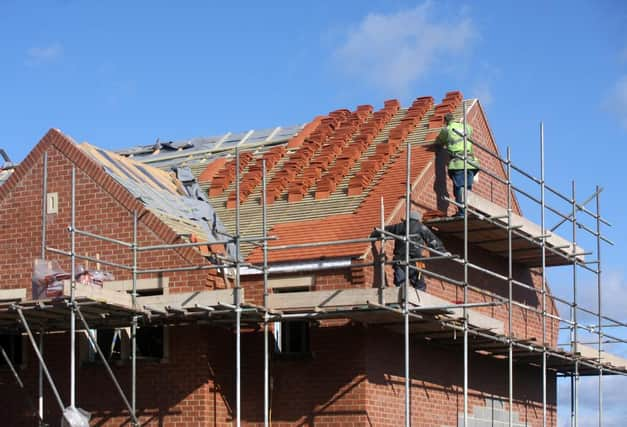MPs call for curbs on second home ownership and Airbnbs in upcoming Planning Bill


Cross-party MPs have called on the government to disincentivise second home ownership in the upcoming Planning Bill to solve England’s housing crisis.
Participating in a debate on the Bill on July 15, MPs including Tim Farron (Lib Dem) and Selaine Saxby (Conservative) said high levels of Airbnb and second home ownership are turning holiday hotspots into “ghost towns”, with local people priced out of private renting and buying.
Advertisement
Hide AdAdvertisement
Hide AdWe want to hear from you: let us know what you think about this story and be part of the debate in our comments section below
At a glance: 5 key points
-Hosted in Westminster Hall on July 15, the Planning Bill debate featured a number of MPs who outlined their concerns, suggestions and thoughts about the Bill, covering issues such as housing targets, the environment and planning permission.
-The issue of second home ownership and Airbnb lets featured heavily in the debate, with several MPs calling for curbs and disincentives to be included in the Planning Bill to prevent locals from being priced out of buying or renting in their area.
-Community involvement in planning decisions also came up several times in the debate, with MPs fearing that the Bill’s intention to fast-track certain permissions could exclude communities from having a say in development in their area.
Advertisement
Hide AdAdvertisement
Hide Ad-MPs including Daniel Zeichner, Labour MP for Cambridge Central, expressed concerns that the Bill did not include rigorous, enforceable environmental targets for future development.
-While some MPs were critical of the Bill, others, including Conservative MP for Stourbridge Suzanne Webb, said they welcomed the reforms being proposed by the government.
What’s been said
Bob Seely, Conservative MP for the Isle of Wight and chair of the Planning Bill debate, opened the session by outlining his concerns and suggestions around the growth in second home ownership.
“Buyers who take homes and turn them into Airbnbs should be required to have a change of use by councils.
Advertisement
Hide AdAdvertisement
Hide Ad“Councils should be allowed to frame localised plans to reverse and lower the percentage of long-term holiday and commercial holiday rentals in specific communities,” he said.
His comments were echoed by Selaine Saxby, MP for North Devon, who said that her constituency has seen a sharp rise in second home ownership, creating “ghost towns” in the winter.
“We have nowhere for local people to live… we’ve always been an area that welcomes tourists and welcomes second home owners but unfortunately that dynamic has tilted in the wrong direction.
“New builds are now just snapped up as second homes or holiday lets.
Advertisement
Hide AdAdvertisement
Hide Ad“Croyd is now 64% second home owned. Where I live, I’m one of just six houses occupied of the 30 on my close,” she said.
The Ministry of Housing, Communities and Local Government have been contacted for comment.
Background
The Planning Bill, which applies to England only, was first introduced as a White Paper in August 2020, outlining the biggest shake-up of planning seen in the country since shortly after the Second World War.
The Bill proposes radical changes to the current planning system, including designating areas into three categories with responding rules around planning permission: “growth”, “renewal” and “protected”.
Advertisement
Hide AdAdvertisement
Hide AdIn areas designated for “growth”, planning permissions will be fast-tracked - a move which has proved controversial among critics who say this could silence the voice of local communities in planning decisions.
The Bill also sets housing targets using a new algorithm, and will make changing use classes of buildings much faster and easier.
Comment Guidelines
National World encourages reader discussion on our stories. User feedback, insights and back-and-forth exchanges add a rich layer of context to reporting. Please review our Community Guidelines before commenting.